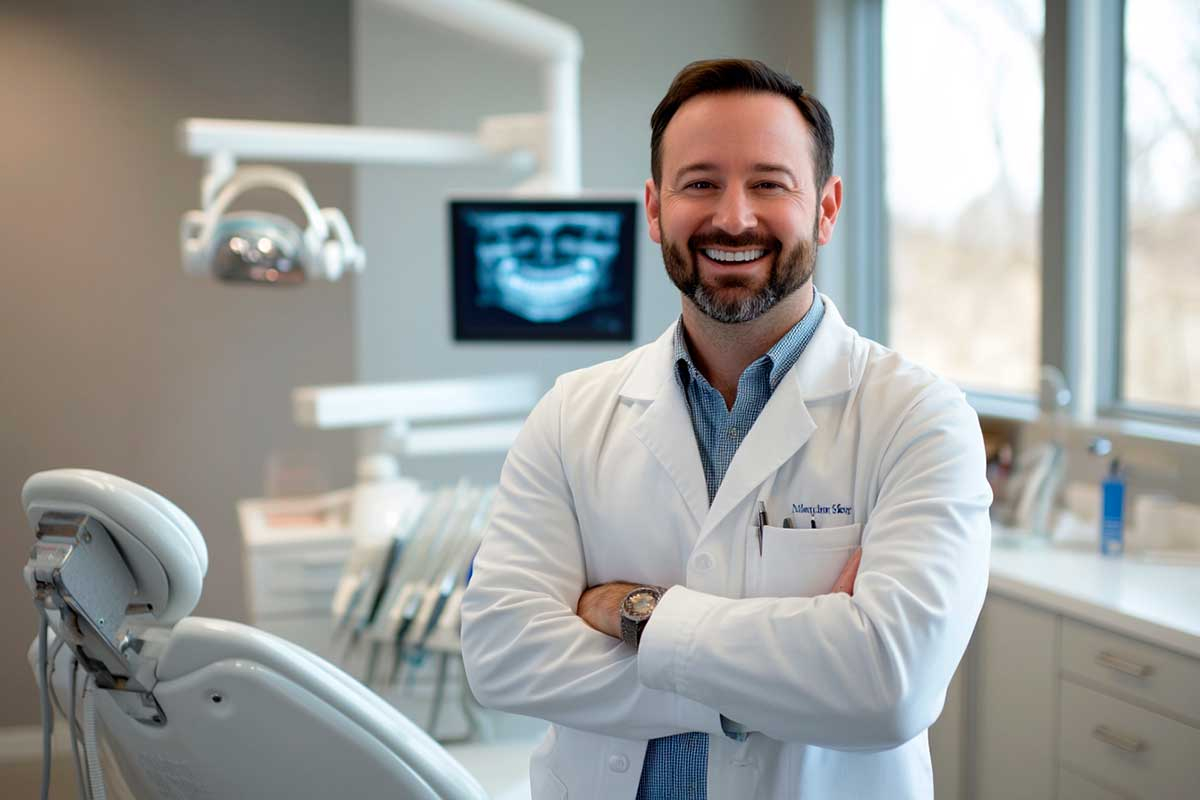
Dentist
Watch our video about Dentist
A Dentist is a healthcare professional who specializes in the prevention, diagnosis, and treatment of oral health issues. Dentists play a crucial role in maintaining healthy teeth, gums, and overall oral hygiene. They are trained to perform a wide range of procedures, from routine check-ups and cleanings to more complex treatments like root canals, dental implants, and cosmetic dentistry. Dentists not only treat existing conditions but also focus on preventive care to help patients avoid future oral health problems.
Dentists offer treatments for various dental concerns, such as cavities, gum disease, and tooth decay. They also provide cosmetic treatments to enhance the appearance of the teeth, including Teeth Whitening and veneers. A regular visit to the dentist is essential for maintaining good oral health and preventing serious conditions from developing.
Specialties and Treatments Offered by Dentists
Preventive Care and Dental Cleanings
One of the key roles of a dentist is providing preventive care to ensure that patients maintain healthy teeth and gums. This includes regular dental cleanings to remove plaque and tartar buildup, which can lead to cavities and gum disease if left untreated. Preventive care also involves dental exams, where the dentist checks for any signs of oral health issues, such as tooth decay or early stages of gum disease. X-rays may also be taken to detect problems that are not visible during a regular exam.
Regular dental cleanings are essential for preventing tooth decay and maintaining overall oral health. Dentists recommend that patients visit every six months for cleanings and check-ups to keep their teeth and gums in optimal condition. Preventive care can save patients from more invasive and costly procedures in the future.
Restorative Dentistry
Restorative dentistry focuses on repairing and restoring the function and appearance of teeth that have been damaged or lost due to decay, trauma, or disease. Common restorative procedures include fillings, crowns, bridges, root canals, and dental implants. Dentists use advanced materials to fill cavities or replace damaged teeth, restoring both the function and aesthetics of a patient’s smile.
For example, dental crowns are used to cover and protect a tooth that has been weakened by decay or damage. Crowns are custom-made to fit over the affected tooth, offering strength and durability. Dental implants are another popular restorative treatment that replaces missing teeth. Implants consist of a titanium post surgically placed into the jawbone, which acts as a stable foundation for a replacement tooth. Implants not only restore the function of missing teeth but also prevent bone loss and maintain the structure of the jaw.
When to See a Dentist
It’s important to visit a dentist regularly for check-ups, but there are specific symptoms that may require immediate attention:
- Tooth pain or sensitivity: Persistent pain or sensitivity to hot or cold may indicate tooth decay, an infection, or gum disease.
- Bleeding gums: Gums that bleed during brushing or flossing may be a sign of gingivitis or periodontal disease, both of which require professional care.
- Bad breath: Chronic bad breath, also known as halitosis, can be a sign of an underlying dental issue, such as gum disease or decay.
- Loose or missing teeth: If you experience loose teeth or tooth loss, a dentist can provide restorative treatments to prevent further damage.
Any of these symptoms should prompt a visit to the dentist to prevent more serious oral health problems from developing.
Preventive Measures for Oral Health
Maintaining good oral hygiene is key to preventing dental issues. Here are some preventive measures that can help:
- Brushing and flossing: Brushing your teeth twice a day and flossing once a day helps remove food particles and plaque, reducing the risk of cavities and gum disease.
- Regular dental visits: Seeing a dentist every six months for a cleaning and exam ensures early detection and treatment of oral health issues.
- Healthy diet: Limiting sugary foods and beverages can help prevent tooth decay, while drinking plenty of water and eating a balanced diet supports overall oral health.
Frequently Asked Questions (FAQ)
1. How often should I visit the dentist?
It is generally recommended to visit the dentist twice a year for routine cleanings and check-ups. However, patients with certain conditions, such as gum disease, may require more frequent visits.
2. Is dental treatment painful?
Most dental procedures are not painful thanks to local anesthesia and modern techniques. Patients may feel mild discomfort during and after treatment, but dentists take measures to ensure patient comfort.
3. Can a dentist help with cosmetic concerns?
Yes, dentists offer a range of cosmetic treatments, including teeth whitening, veneers, and bonding, to improve the appearance of your smile.
Dentist Services at Clinic Consultation
At Clinic Consultation, we provide comprehensive dental care, from preventive check-ups to advanced restorative and cosmetic procedures. Our skilled dentists ensure personalized care to meet all your oral health needs.
Book an appointment today at Clinic Consultation and take the first step toward maintaining a healthy and beautiful smile.
Click the button below to schedule your appointment online.